 10 citations,
July 2002 in “Australasian Journal of Dermatology”
10 citations,
July 2002 in “Australasian Journal of Dermatology” Careful management of blood thinners is crucial for lupus patients with APS.
 8 citations,
November 1990 in “Archives of Dermatology”
8 citations,
November 1990 in “Archives of Dermatology” A woman with EMS showed unusual skin mucinosis without the typical hard skin syndrome, suggesting EMS can cause skin mucinosis.
 7 citations,
December 1987 in “Fertility and sterility”
7 citations,
December 1987 in “Fertility and sterility” The vellus index is a simple, quick, and reliable method to assess and monitor hair growth, especially in hirsutism.
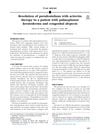 6 citations,
February 2019 in “JAAD case reports”
6 citations,
February 2019 in “JAAD case reports” Acitretin helped improve hand mobility and skin condition in a patient.
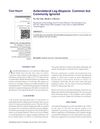 5 citations,
January 2014 in “International Journal of Trichology”
5 citations,
January 2014 in “International Journal of Trichology” Hair loss on the lower legs is common in middle-aged men, usually harmless, and doesn't need treatment.
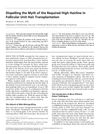 5 citations,
September 2000 in “Dermatologic Surgery”
5 citations,
September 2000 in “Dermatologic Surgery” Lower hairlines using the rule of thirds can be used in hair transplants due to improved techniques.
 4 citations,
February 2020 in “Journal of Cosmetic Dermatology”
4 citations,
February 2020 in “Journal of Cosmetic Dermatology” Trichoscopy helps diagnose hairline recession causes in Egyptian women, with androgenetic alopecia being the most common.
 4 citations,
October 2018 in “Cell Stem Cell”
4 citations,
October 2018 in “Cell Stem Cell” Hox genes control hair growth patterns in mammals by regulating stem cell activity in the skin.
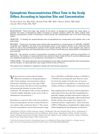 4 citations,
July 2016 in “Dermatologic Surgery”
4 citations,
July 2016 in “Dermatologic Surgery” Higher epinephrine concentration and specific injection sites increase scalp vasoconstriction time.
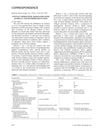 3 citations,
September 2017 in “Pediatric Dermatology”
3 citations,
September 2017 in “Pediatric Dermatology” Avoiding allergens can improve skin and hair conditions in adults with allergic reactions.
 3 citations,
February 1996 in “Dermatologic Surgery”
3 citations,
February 1996 in “Dermatologic Surgery” Walter P. Unger suggests using advanced hair transplant techniques for broader coverage, as they provide natural results and use donor tissue efficiently, while also recommending personalized planning due to the unpredictable progression of baldness.
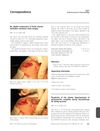 2 citations,
August 2013 in “British Journal of Dermatology”
2 citations,
August 2013 in “British Journal of Dermatology” Chemotherapy improved a girl's painful foot condition linked to pachyonychia congenita.
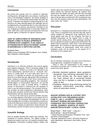 2 citations,
November 2011 in “Journal of Infection”
2 citations,
November 2011 in “Journal of Infection” A woman with asthma improved from a severe fungal infection after treatment change, and most HIV-positive women in a UK study had low immune cell counts but were responding well to treatment.
 2 citations,
June 2005 in “Clinical Oncology”
2 citations,
June 2005 in “Clinical Oncology” A man's bald spot grew hair after starting cancer treatment with gefitinib.
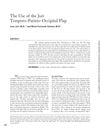 2 citations,
May 2005 in “Seminars in Plastic Surgery”
2 citations,
May 2005 in “Seminars in Plastic Surgery” The Juri Temporo-Parieto-Occipital Flap is a good option for scalp reconstruction and hairline restoration with a natural look, despite some risk of necrosis and scarring.
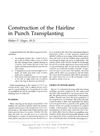 2 citations,
January 1985 in “Facial Plastic Surgery”
2 citations,
January 1985 in “Facial Plastic Surgery” The paper concludes that for natural-looking hair restoration, it's important to create an irregular hairline, use appropriately sized and angled grafts, and ensure a snug fit between grafts and recipient sites.
 1 citations,
June 2012 in “Revista Brasileira de Cirurgia Plástica”
1 citations,
June 2012 in “Revista Brasileira de Cirurgia Plástica” The procedure is effective for reducing the forehead despite potential for visible scars.
 1 citations,
March 2011 in “Infertility”
1 citations,
March 2011 in “Infertility” Hormone imbalances from the pituitary, thyroid, and adrenal glands can cause infertility, but treating these disorders can improve fertility.

Hair loss in young men in Central India is linked to severe heart disease.
 August 2018 in “Journal of the American Academy of Dermatology”
August 2018 in “Journal of the American Academy of Dermatology” A new cosmetic cream reduced facial redness and skin temperature after 4 weeks of use.

Hormones, especially testosterone and DHT, are key for penis development and function, and testosterone therapy may help with erectile dysfunction in those with low levels.
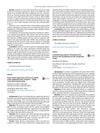 October 2017 in “Indian heart journal”
October 2017 in “Indian heart journal” Obesity is an independent risk factor for early coronary artery disease (CAD) and its severity is not affected by age.
 January 2016 in “Springer eBooks”
January 2016 in “Springer eBooks” The document concludes that there are various causes and treatments for hair loss, with hair transplantation being a notable option.
 November 2014 in “Elsevier eBooks”
November 2014 in “Elsevier eBooks” Gene mutations can cause problems in male genital development.
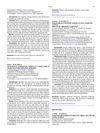 September 2011 in “Clinical Biochemistry”
September 2011 in “Clinical Biochemistry” Glycoconjugates help heal hair follicles during skin repair.
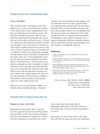 December 2010 in “Dermatologic Surgery”
December 2010 in “Dermatologic Surgery” Finasteride's effectiveness on the frontal hair loss area is not well-studied or confirmed.
 July 2002 in “Australasian Journal of Dermatology”
July 2002 in “Australasian Journal of Dermatology” A woman with lupus had hair loss and skin issues that were successfully treated with medications.
 July 2002 in “Australasian Journal of Dermatology”
July 2002 in “Australasian Journal of Dermatology” Maintaining anticoagulation is crucial for patients with antiphospholipid syndrome.
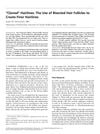 October 2001 in “Dermatologic Surgery”
October 2001 in “Dermatologic Surgery” Cutting and implanting hair follicles can create finer, more natural-looking hairlines, with about half of the implanted hairs growing back.
 May 1963 in “American journal of obstetrics and gynecology”
May 1963 in “American journal of obstetrics and gynecology” Injecting 2 ml of TEEV every 4 weeks is better because it has the same benefits but fewer side effects.






























